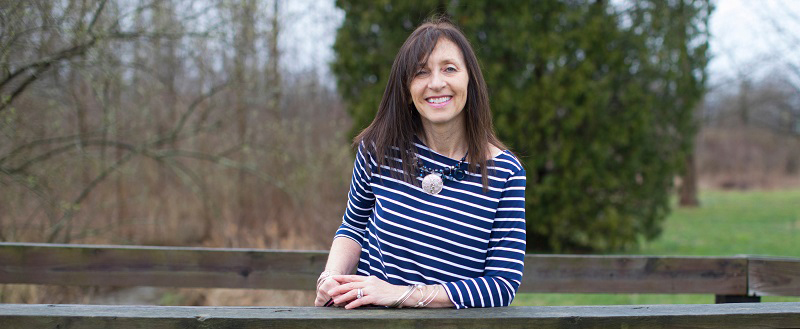Conquering a complex colorectal diagnosis

Because she was battling a cold and trying to prepare for her daughter’s college graduation party the next day, Claudia Hall considered skipping the appointment for her annual checkup with her gynecologist in May 2014. The Lexington resident figured she could reschedule the appointment in a week or two. But after finding out the next best appointment time for her was nearly three months away, she decided to go ahead with the checkup.
“I said, ‘No, I don’t want to let that go that long,’” Hall said. “And I tell you that because it saved my life.”
At the appointment with UK HealthCare OB-GYN Wendy Jackson, MD, Hall underwent the usual tests and checks, including a digital rectal exam, generally performed on female patients over the age of 40. The exam revealed some troubling news: a large mass in Hall’s rectum.
A surprising diagnosis
Jackson made an appointment for Hall to see UK Markey Cancer Center colorectal surgeon Sandra Beck, MD, the following week.
After several rounds of testing, Hall had a diagnosis: squamous cell carcinoma, a type of skin cancer that can occur anywhere in the body. The news came as a shock to the otherwise healthy, fit mother of two who had no family history of colorectal cancer and had received a clean colonoscopy just three years before.
“I was pretty much asymptomatic,” Hall said. “The only problem I had was sort of a pain on the right side of my hip.”
At Markey, Hall underwent one chemotherapy infusion, a round of oral chemotherapy and 30 radiation treatments over the course of six weeks, all in an effort to reduce or eliminate her tumor prior to surgery.
Complicated tumor requires team effort
The tumor’s location made it tricky to determine whether its point of origin was the colon or cervix, but it was fortunate that the tumor had not spread elsewhere in her body, Hall said.
However, the disease had affected such a large area of her gastrointestinal tract that much of that tract couldn’t be salvaged. After she had recovered from radiation, Hall was scheduled for a complex combined surgery to remove all the areas where the tumor had been, including the entire rectum, anus and the back of the vaginal wall.
Beck and Markey gynecologic oncologist Rachel Miller, MD, removed the diseased areas, while UK plastic surgeon James Liau, MD, reconstructed the vaginal wall using skin and muscle from Hall’s abdominal wall.
“This surgery is not very common, but we often do combined procedures for complicated tumors like this at UK,” Beck said. “It’s great for us to have all the experts in these fields to be able to provide this level of care for our patients.”
As a result of her extensive treatment, Hall is now in remission and has been cancer-free for more than two years. The surgery has left her with one major side effect, though: a permanent colostomy, which is an opening in the body (known as a stoma) that connects the colon to the surface of the abdomen.
Dealing with such a major alteration to the body can be hard for many patients, but Hall is eternally optimistic – and realistic – about her lifelong need for the device.
“It’s been life-changing,” she said. “But I’m blessed. I’m grateful for it, because without it, I can’t live.”
Patients are part of the team, too
The team aspect of Hall’s care is important – in total, six different specialists and their respective staffs cared for Hall throughout her treatment.
From Jackson’s initial discovery and referral to the chemo prescribed by Markey medical oncologist Philip DeSimone, MD, and the radiation schedule given by radiation oncologist William St. Clair, MD, to the combined surgeries performed by Beck, Miller and Liau, Hall experienced a range of care that only the most advanced medical centers in the country can provide.
Beck emphasized to Hall that as the patient, she was also a big part of the team.
“Initially when I went to see her – I’ll never forget this – she said, ‘We are a team here,’” Hall recalled. “‘I’m your coach and you’re my quarterback.’”
These days, life has largely returned to normal for Hall, who still maintains an active lifestyle. She and her husband regularly boat on Lake Barkley, and she enjoys cooking, exercising and watching after her “granddog,” Kona. She stresses the importance of being proactive in your own healthcare, saying that knowing about any potential health risks is far better than not knowing.
“I was doing everything right, and it just happens sometimes,” she said. “But I’m very thankful I didn’t skip that appointment that day, because I’ve often wondered what would’ve happened if I’d waited.”









